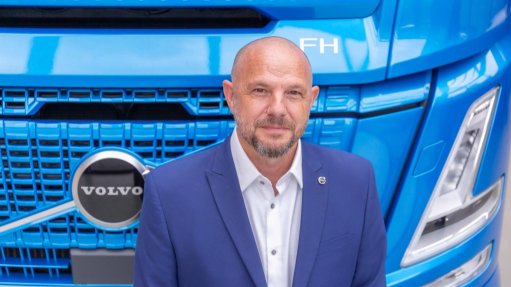Independent power producers and Weet-Bix
There is a vociferous attack on independent power producers (IPPs) and renewables in South Africa, despite the energy crisis that the country is experiencing and the fact that the long-term prospects for State-owned electricity utility Eskom look rather bleak.
Eskom is a choke point, just as narrow channels or sea lines of communication (SLOCs) are for the oil industry. Shut off the Hormuz Channel, the Strait of Malacca or the Red Sea Channel, which leads up to the Suez Canal, and you cut an essential lifeline for the world economy. Indeed, countries go to war to keep SLOCs open. Britain and France went to war in 1956 when Egyptian President Abdul Nasr nationalised the Suez Canal. Choke points are sources of lucrative rents.
Eskom is a bit like that. It is a behemoth on which the entire South African economy hangs. There are three reasons for this, the first being that Eskom is not only the sole supplier of electricity (about 90%) but also a major procurer of coal, alongside the export markets. Secondly, it is a source of lucrative rents – through both legitimate contracts and corrupt ones. Thirdly, the utility wields influence on the rate of change in the electricity supply industry because it has a big say over the energy mix, as reflected in the Integrated Resource Plan (IRP).
Coal is procured from both big and small private firms. With cost-plus mines reaching the end of their operating lives and very little new investment taking place, coal is increasingly being procured from small or medium-sized coal firms with cross-linkages to the coal trucking industry. In its unconverted form, coal is supplied predominantly from independent coal producers. This is quite an irony, given all the heckling that is going on concerning IPPs.
IPPs do not come from nowhere or through the back door, as one union representative put it. They are modelled in every issue of the IRP, on which the Minister of Energy is obliged to consult the public. The National Economic Development and Labour Council (Nedlac), which is a negotiating forum representing business and labour, has to have a say on the IRP before it is released. The modelling is based on the least-cost generation technology option and is there for everybody to see. To claim that IPPs are sort of secret or to suggest that there are conspiracies involving IPPs is misleading, if not plain anti-IPP propaganda.
Coal plants cannot run without coal. Half the cost of coal generation is associated with coal. In a sense, 50% of electricity generation costs represents money that is spent with private vendors. The cost of coal has doubled, if not trebled, in some circumstances. We all know about the Gupta-owned Tegeta’s Optimum coal mine, which was snatched away from Glencore with a bit of Ministerial bullying. Coal supplied by the Guptas came at a significant premium. The way coal is procured remains somewhat opaque. Eskom should move to long-term contracts if it is to bargain for the best prices and keep the cost of coal supply stable.
The IRPs projections of generation technologies often do not keep up with real costs, as we have found out with early IRP estimates of renewables and nuclear. Renewables costs have come down radically, compared with nuclear build costs. We now have actual prices to work with, thanks to a well-run IPP procurement process in which every subsequent bids have seen prices further decreasing.
IPPs are misconstrued – they are no different from Weet-Bix producers. If government needed to provide learners at a school with Weet-Bix every morning and it did not want to build its own Weet-Bix factories, it would put out a tender inviting private firms to bid for a long-term supply contract. Owning a factory comes with its fair share of problems, such as having to deal with a depreciating asset, paying off the debt, managing health and safety standards, dealing with labour disputes or other legal conflicts, besides other challenges. Contracting outside suppliers means that, instead of bringing the factory onto its balance sheet, it remains on the balance sheet of the supplier or vendor.
If there is no Weet-Bix in the country and thus no experience in dealing with the product and its market, government’s procurement people may make some errors in the initial stage, owing to the knowledge and experience asymmetries between buyers and sellers. In the first round, sellers always know more than the buyer. The price of Weet-Bix will likely be higher for each box sold initially than in subsequent rounds. This will be more so if government is uncertain about its own strategy for the long term in relation to whether it wants to buy Weet-Bix for the next five or ten years.
However, with each subsequent tender or bid process, government will learn more and more and become better at the game, all things being equal. Government’s buying power and its ability to enter into long-term deals eliminates significant risks to a supplier, especially if it goes into a new market and puts up a factory that has a life span of 20 years or more.
In many respects, IPPs are like Weet-Bix suppliers. The acronym IPP ought not evoke such negativity, given that, in reality, there is no big difference between buying an electron without owning the wind farm and buying coal without owning the coal mine, as this is tantamount to buying a box of Weet-Bix without owning the factory.
The debate about IPPs and renewables is characterised by hypocrisy and contradictions. One should have no regard for an IPP or Weet-Bix factory owner – but only for the price at which you buy an electron or a box of Weet-Bix. That is all that matters if one is pursuing the public interest.
Article Enquiry
Email Article
Save Article
Feedback
To advertise email advertising@creamermedia.co.za or click here
Press Office
Announcements
What's On
Subscribe to improve your user experience...
Option 1 (equivalent of R125 a month):
Receive a weekly copy of Creamer Media's Engineering News & Mining Weekly magazine
(print copy for those in South Africa and e-magazine for those outside of South Africa)
Receive daily email newsletters
Access to full search results
Access archive of magazine back copies
Access to Projects in Progress
Access to ONE Research Report of your choice in PDF format
Option 2 (equivalent of R375 a month):
All benefits from Option 1
PLUS
Access to Creamer Media's Research Channel Africa for ALL Research Reports, in PDF format, on various industrial and mining sectors
including Electricity; Water; Energy Transition; Hydrogen; Roads, Rail and Ports; Coal; Gold; Platinum; Battery Metals; etc.
Already a subscriber?
Forgotten your password?
Receive weekly copy of Creamer Media's Engineering News & Mining Weekly magazine (print copy for those in South Africa and e-magazine for those outside of South Africa)
➕
Recieve daily email newsletters
➕
Access to full search results
➕
Access archive of magazine back copies
➕
Access to Projects in Progress
➕
Access to ONE Research Report of your choice in PDF format
RESEARCH CHANNEL AFRICA
R4500 (equivalent of R375 a month)
SUBSCRIBEAll benefits from Option 1
➕
Access to Creamer Media's Research Channel Africa for ALL Research Reports on various industrial and mining sectors, in PDF format, including on:
Electricity
➕
Water
➕
Energy Transition
➕
Hydrogen
➕
Roads, Rail and Ports
➕
Coal
➕
Gold
➕
Platinum
➕
Battery Metals
➕
etc.
Receive all benefits from Option 1 or Option 2 delivered to numerous people at your company
➕
Multiple User names and Passwords for simultaneous log-ins
➕
Intranet integration access to all in your organisation

















